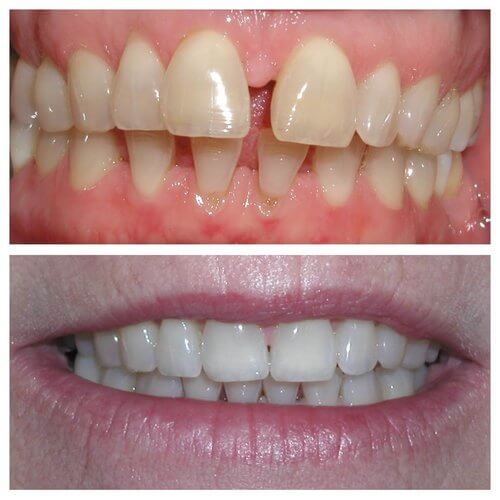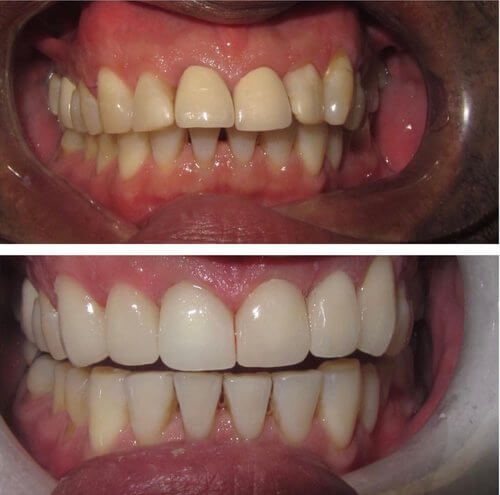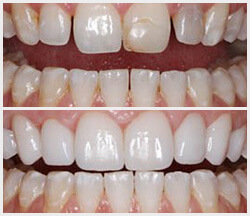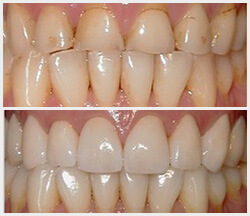Before undergoing dental implant surgery, you’ll need to be aware of certain medications that can negatively affect the procedure and recovery. Please talk to your dentist or oral surgeon to inform them of all the medications that you’re currently taking.
Please note that this isn’t an exhaustive list, and other medications can affect dental implant treatment.
Medications That Can Affect Dental Implants
Blood Thinners
Blood thinners, such as warfarin and heparin, can increase the risk of bleeding during surgery. Patients taking blood thinners may need to stop taking them before the implant surgery and be closely monitored during the healing process. Please consult with a healthcare professional before stopping any medication.
Antibiotics
Some antibiotics, such as amoxicillin and clindamycin, may be prescribed before or after dental implant surgery to prevent infection. However, some antibiotics may negatively interact with the dental implant material. Please inform your dentist of any allergies or sensitivities to antibiotics.
Anti-Depressants
Certain anti-depressants, such as tricyclic antidepressants and selective serotonin reuptake inhibitors (SSRIs), can affect bone healing and may prolong the healing time for dental implants. Patients taking these medications should inform their dentist and may need to have a longer healing period before implant treatment can be completed.
Bisphosphonates
Bisphosphonates, such as alendronate and risedronate, are often prescribed to treat osteoporosis and can cause jawbone loss. Patients who have taken bisphosphonates for an extended period may not be suitable candidates for dental implant treatment.
Beta-blockers
Beta-blockers, such as propranolol and metoprolol, are commonly used to treat hypertension and heart conditions. However, they may have a positive effect on dental implants as they’re known to strengthen bone metabolism, which promotes healing.
Heartburn Medications
Proton pump inhibitors (PPIs) and H2 receptor antagonists are commonly prescribed to treat heartburn and acid reflux. Long-term use of these medications can lead to decreased calcium absorption and increase the risk of osteoporosis.
Frequently Asked Questions
Can I continue taking my medications after dental implant surgery?
Yes, in general, it’s safe to continue taking medications after dental implant surgery. However, make sure to follow any instructions given to you by your dentist or oral surgeon, as they may have specific recommendations based on your individual case. It’s always best to consult with your healthcare provider before making any changes to your medication regimen.
Will I need to stop taking my medication before the implant surgery?
It depends on the type of medication you’re taking. Some medications, such as blood thinners, may need to be adjusted or discontinued before dental implant surgery to minimize the risk of bleeding during the procedure. Your dentist will advise you on the specific medications that need to be adjusted or stopped before surgery. Always inform your dentist of all medications you’re taking, including prescription drugs, over-the-counter drugs, dietary supplements, and herbal remedies.
Can I still get dental implant treatment if I am taking bisphosphonates?
Yes, you can still get dental implant treatment if you’re taking bisphosphonates, but it’s important to inform your dentist of this, as bisphosphonates can increase the risk of certain complications during and after implant surgery. Your dentist may need to modify the treatment plan, use special techniques, or monitor you more closely during and after the procedure to minimize the risk of complications.
Will I need to have a longer healing period if I am taking anti-depressants?
In general, taking anti-depressants doesn’t necessarily prolong the healing period after dental implant surgery. However, some types of anti-depressants, particularly selective serotonin reuptake inhibitors (SSRIs), can affect the way the body heals from surgery. SSRIs can impact blood flow and healing, which can lead to longer healing times.
Talk To Your Dentist About Medications Before Dental Implant Treatment
Some medications can affect the success of the treatment and may require adjustments to your treatment plan. It’s best to consult with a healthcare professional before making any changes to your medication regimen. Certain medications may increase the risk of complications, so please keep that in mind before starting implant treatment.



Insurance
We accept many insurances. Please contact one of our Insurance Coordinators to discuss your dental coverage plan.
(718) 948 5111
appointments@sidental.com
Open 7 days a week
Reviews
The dentists are absolutely excellent…
“I have been going here for years. The dentists are absolutely excellent and they always have an appointment available that fits into a busy schedule. I also completed invisilgn and my teeth are perfectly straight now. They also practice preventive medicine and just went in for my 6 month cleaning. Every time feel like I have a new set of choppers and best yet the check up noted no cavities!.”
— J.R
Pleasant visit
“As usual, it was a pleasant visit thanks to Dr. Nasso and her great staff..”
— C.M.
Always treated with courtesy and respect.
“Always treated with courtesy and respect. All of my questions were answered regarding upcoming treatments..”
— J.C.
Smile Profile




Put your best face forward.
Create a positive change to your teeth and your smile.
